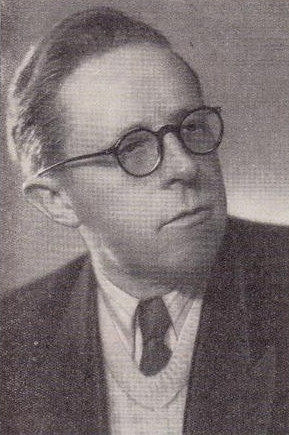
Jānis Ķepītis
(02.01.1908 - 09.08.1989 )
Jānis Ķepītis was born on January 2, 1908, in Trikāta administrative parish. His father was dismissed from his job as a teacher due to his progressive opinions, and therefore his mother, a seamstress, was forced to provide for the family. Both of Ķepītis’ parents loved music greatly, and the young boy began learning to play the piano from them.
Ķepītis is best known as a pianist, music teacher and composer of songs, operas and symphonic and chamber music. He is less known as an organist, although the organ had always been his great love. It is thanks to this instrument that he was able to access the books in the Trikāta church and gain an archivist’s insight and confirmation of his father’s and grandfather’s stories.
Ķepītis attended the Pakalniņš parish school in Valmiera. In 1926 he graduated from the Valmiera Gymnasium and also the piano class at the Valmiera music school. He had performed as a solo pianist and accompanist since the age of fourteen. With the support of the progressive pastor Helmers Pavasars in Valmiera, the young Ķepītis was allowed access to the sonorous church organ, and it was with this instrument that he first explored the possibilities of improvisation. It is precisely this ability of the emerging composer that caught the eye of Prof. Jāzeps Vītols at the Latvian Conservatory.
Ķepītis graduated from Vītols’ composition class in 1931, graduating from Prof. Pauls Šūberts piano class just a year later. He graduated from the conservatory a third time in 1934, having studied conducting under Jānis Mediņš.
Ķepītis began his career in music as a pianist and accompanist for Rīgas Radio (1934–1952). In approximately 1933, Vītols established his famous J. Vītols Trio with some of his most promising students: Ķepītis, Voldemārs Rušēvics and Atis Teihmanis. The trio popularised Latvian music by performing widely in concert and being a frequent guest on radio broadcasts.
The Latvian Cultural Foundation of that time awarded the bright and promising young artist the opportunity and means to spend a year and a half continuing his education in Paris and Wiesbaden.
Ķepītis continued his work as a musician during the Second World War as much as circumstances allowed, but his career truly began to flourish after the war. He completed his opera Minhauzena precības (The Marriage of Munchausen) and the Concerto for violin and orchestra in 1945. He wrote the Symphony No. 1 in 1953. Having thus convinced himself that he was also capable of writing in this genre, he continued composing for symphony orchestra from time to time in the years to come. But he regularly composed solo songs, and it was in this genre that his lyrical talent really shone.
At the invitation of Alfrēds Kalniņš, Ķepītis began leading the chamber ensemble class at the State Conservatory immediately following the war. For the next forty years he encouraged and inspired this field of music both as a pedagogue and department head as well as a composer.
Ķepītis died on August 9, 1989.
